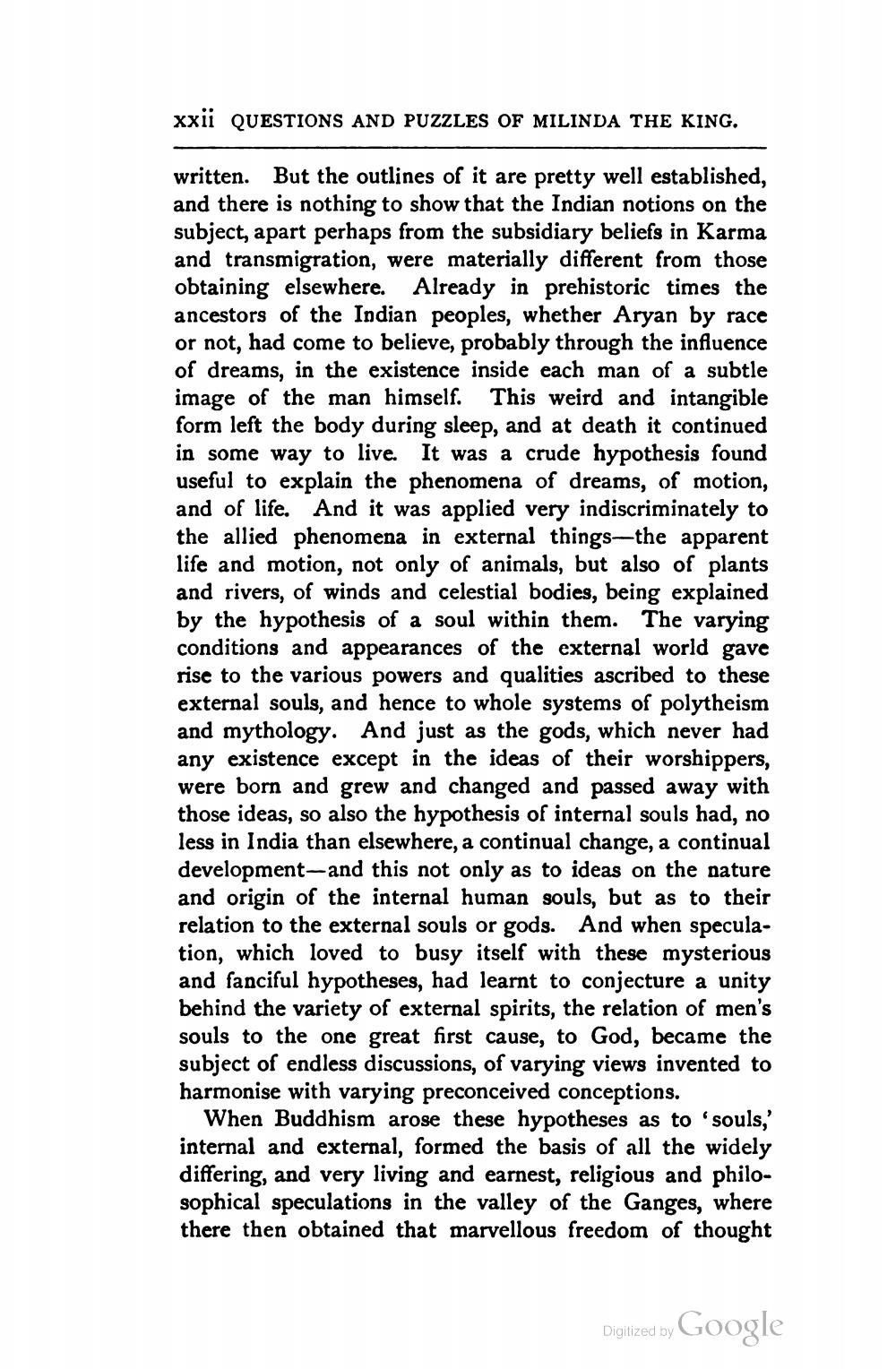________________
Xxii QUESTIONS AND PUZZLES OF MILINDA THE KING.
written. But the outlines of it are pretty well established, and there is nothing to show that the Indian notions on the subject, apart perhaps from the subsidiary beliefs in Karma and transmigration, were materially different from those obtaining elsewhere. Already in prehistoric times the ancestors of the Indian peoples, whether Aryan by race or not, had come to believe, probably through the influence of dreams, in the existence inside each man of a subtle image of the man himself. This weird and intangible form left the body during sleep, and at death it continued in some way to live. It was a crude hypothesis found useful to explain the phenomena of dreams, of motion, and of life. And it was applied very indiscriminately to the allied phenomena in external things-the apparent life and motion, not only of animals, but also of plants and rivers, of winds and celestial bodies, being explained by the hypothesis of a soul within them. The varying conditions and appearances of the external world gave rise to the various powers and qualities ascribed to these external souls, and hence to whole systems of polytheism and mythology. And just as the gods, which never had any existence except in the ideas of their worshippers, were born and grew and changed and passed away with those ideas, so also the hypothesis of internal souls had, no less in India than elsewhere, a continual change, a continual development-and this not only as to ideas on the nature and origin of the internal human souls, but as to their relation to the external souls or gods. And when speculation, which loved to busy itself with these mysterious and fanciful hypotheses, had learnt to conjecture a unity behind the variety of external spirits, the relation of men's souls to the one great first cause, to God, became the subject of endless discussions, of varying views invented to harmonise with varying preconceived conceptions.
When Buddhism arose these hypotheses as to 'souls,' internal and external, formed the basis of all the widely differing, and very living and earnest, religious and philosophical speculations in the valley of the Ganges, where there then obtained that marvellous freedom of thought
Google
Digitized by




